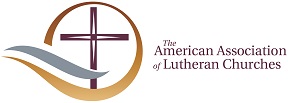St. Luke the Evangelist
Lutheran Church


Private Confession and Absolution 10-10:30 am
Divine Service 11 am
Coffee and Refreshments 12 pm
Bible Study and Sunday School 12:15-1:15 pm
See the calendar for feast day liturgies, Bible studies, and other events.
Worship at St. Luke and in the historic Lutheran Church is typically called by another name: Divine Service. Lutherans believe that what happens on Sunday morning is not primarily what we do, but is what God first does for us. Our worship is merely a response to God first coming to us by means of His Holy Word and Sacraments to declare to us Who He is, what He has done for us in Jesus Christ, and what His attitude is toward us on account of Christ's work and merit. Therefore, the Divine One – God – serves us. As Christ our Lord says: the Son of Man came not be served but to serve, and to give His life as a ransom for many [St. Matthew 20:28].
So it is that Christ the Lamb of God Who has taken away the sin of the world comes to us in the Divine Service through His Word and Sacraments to deliver to us – in the here and now – what He has already won for us and for the whole world by His Incarnation as an infant, His life, death, crucifixion, resurrection, and ascension: the forgiveness of sins, reconciliation with God, peace with the Father, everlasting life (that begins already now), and eternal salvation.
God serves us in Word and Sacrament. This is the most important aspect of our Lutheran 'worship.' For God does not really need our worship. All things are His already. Still, it is the very nature of faith – faith given and sustained by God the Holy Spirit through the Gospel – to give thanks and praise to God for His gracious gifts. Therefore, in response to God's first work in serving us His creatures in the Divine Service, we in turn serve God, the Divine One, by repeating what He has already said about Himself, about us, and about the blessed work of Christ on our behalf – in psalms and hymns and spiritual songs [Ephesians 5:19] – what the Church calls the liturgy.
The church worshiped liturgically from the beginning. It inherited liturgical forms from synagogue and temple and developed these forms in the light of the revelation of God in Christ.
As we learn the words and actions of the liturgy and come to understand what they mean, we learn to pray the liturgy from the heart and rejoice all the more in the gifts of forgiveness, life and salvation that Christ gives us therein.
The Lord’s Supper is celebrated at this congregation in the confession and glad confidence that, as He says, our Lord gives into our mouths not only bread and wine but His very body and blood to eat and to drink for the forgiveness of sins and to strengthen our union with Him and with one another. Our Lord invites to His table those who trust His words, repent of all sin, and set aside any refusal to forgive and love as He forgives and loves us, that they may show forth His death until He comes.
Because those who eat and drink our Lord’s body and blood unworthily do so to their great harm and because Holy Communion is a confession of the faith which is confessed at this altar, any who are not regular communicants, not yet instructed, in doubt or who hold a confession differing from that of this congregation, and The American Association of Lutheran Churches, and yet desire to receive the Sacrament, are asked first to speak with the pastor.
For further study, see:
Matt. 5:23ff.; 10:32ff.; 18:15–35; 26:26–29; 1 Cor. 11:17–34.